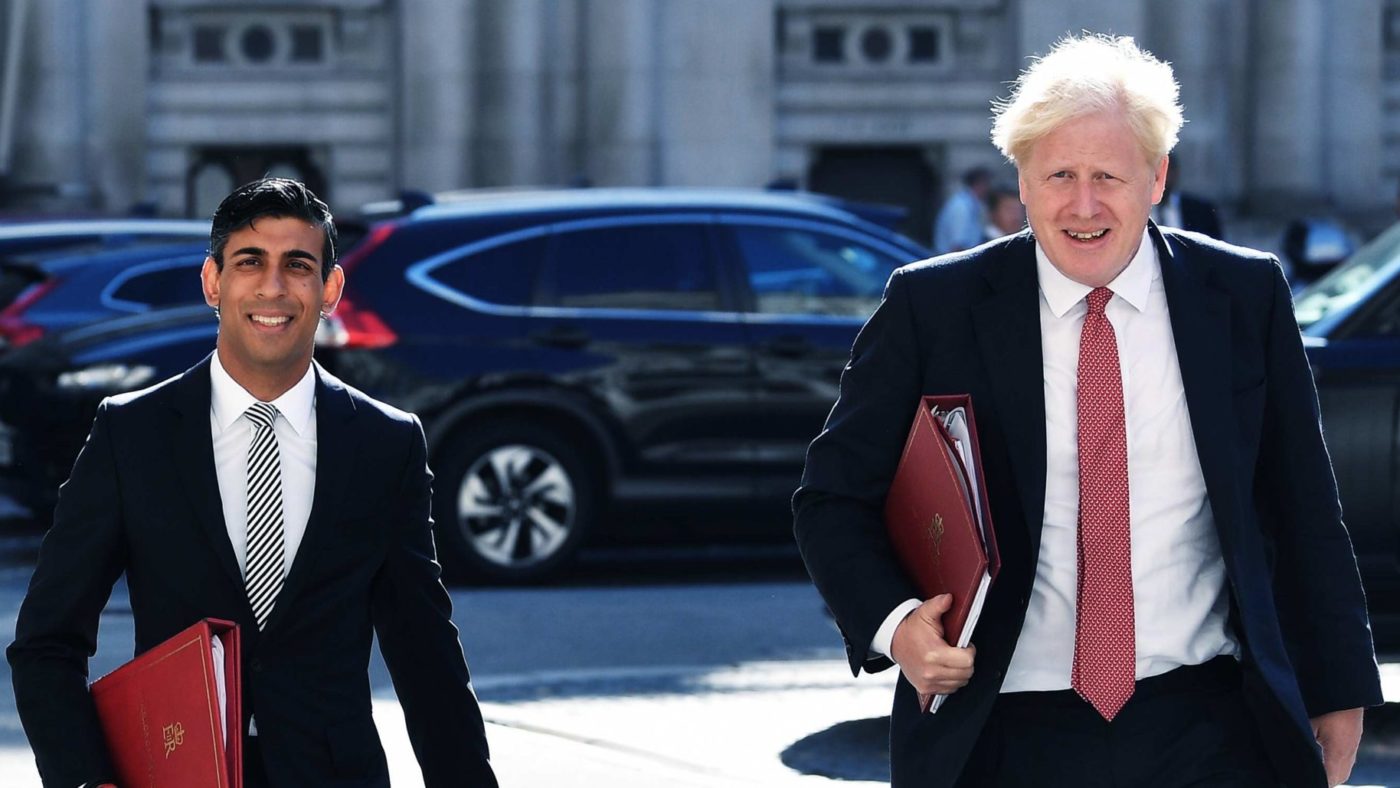If you believe the recent headlines, a Conservative government is about to hike your taxes and raid your pension too. Fortunately, there isn’t much substance in any of this – at least not yet.
For a start, most of this is pure speculation and should be treated as such. Between them, the papers have floated every one of the obvious ways of raising additional revenue, short of breaking the Tory manifesto commitment not to increase the rates of income tax, VAT or National Insurance.
The Sunday Telegraph ran with ‘bombshell tax hikes to pay for virus’, including increases in capital gains and inheritance taxes, cuts in pension tax relief for higher earners, and the introduction of an online sales tax. The Sunday Times went for ‘Sunak plans triple tax raid on the wealthy’, with a hike in corporation tax on the table too. The Sun has focused on the possibility of hikes in fuel duty, while the Daily Express has led on threats to the ‘triple-lock’ on the state pension. I can’t think of much else.
Indeed, most of this is not even new. The Daily Telegraph and Financial Times ran similar stories back in May about the ‘stark options’ being considered to plug a hole in the public finances left by the pandemic. The even wider range of options being discussed now suggests that the plans haven’t moved on much since then.
What’s more, despite suggestions that tax hikes could begin as soon as the Autumn Budget (perhaps in November), this is surely premature. In fact, I’m not aware of any serious economist who thinks that now is the right time to start applying the brakes.
Let’s not forget that the UK economy is only just emerging from a genuinely unprecedented recession. Consumer and business confidence are still fragile and both monetary and fiscal policy will have to support the recovery for the foreseeable future. The winding down of the job retention scheme, though sensible, is already enough of a risk without adding tax hikes on top.
It is also far too early to say what the long-term impact of the pandemic on the public finances is going to be. It would be certainly be odd to raise taxes any time soon purely on the basis of a forecast for the public finances that could be very wrong.
To illustrate this, government borrowing is currently running about £30 billion below the path projected by the OBR for 2020/21. What confidence can we have that the Treasury has identified a £30 billion ‘black hole’ for many more years to come?
Above all, there is no urgency. The budget deficit should narrow sharply next year as the economy recovers and the rest of the emergency support can be withdrawn. The stock of debt will remain higher, but the burden of this debt as a share of national income will also start to come down. In the meantime, it should be readily financeable at historically low interest rates. Ten-year gilt yields of just 0.25% hardly scream ‘fiscal crisis’.
So, what’s behind all this speculation? In part, the talk of tax rises is clearly political, designed to restore the Conservatives’ reputation as the party of sound money.
The Chancellor himself has tried to reassure Tory MPs that there will not be a “horror show of tax rises with no end in sight”. But he also warned of the “need to do some difficult things” and “be honest with [the British people] about the challenges we face and showing them how we plan to correct our public finances”.
This is also consistent with speculation that the Chancellor intends to put up taxes for a limited period to reduce the national debt before cutting them again ahead of the election due in 2024.
However, I’m not sure how much mileage there is in this. If the justification for tax rises is to fill a permanent hole in the public finances left by Covid, then these rises will have to be permanent too. On the other hand, if the economy continues to recover strongly, revenues will rebound anyway.
In any event, Labour has made no secret of its own desire to raise more revenue from companies and from the ‘wealthy’, so this ground is already occupied. Hiking taxes prematurely would not be an obvious sign of ‘economic competence’ either. A relentless focus on economic growth, supply-side reform and boosting productivity would be a better way to put clear blue water between the parties.
Nonetheless, there are valid concerns that, long after the Covid shock has passed, even a Conservative government will find it hard to resist the pressure for a permanent increase in the size and cost of the state.
I wouldn’t go quite as far as here as Allister Heath, who has suggested that ‘Britain is about to be sucked into a catastrophic economic doom loop’. But I can see why the Treasury might want to remind spending departments – and the rest of us – that there are still plenty of bills to pay.
In summary, there is an important debate to be had about the longer-term outlook for the public finances, especially given the ticking demographic timebomb. However, the shells are unlikely to start falling any time soon.
Click here to subscribe to our daily briefing – the best pieces from CapX and across the web.
CapX depends on the generosity of its readers. If you value what we do, please consider making a donation.


